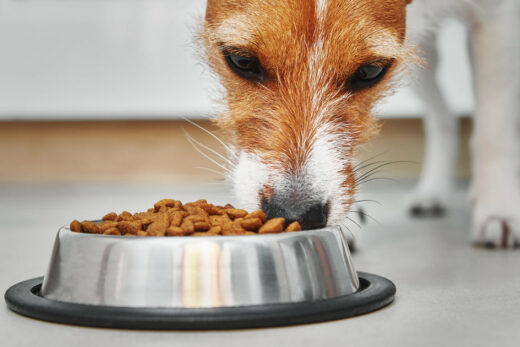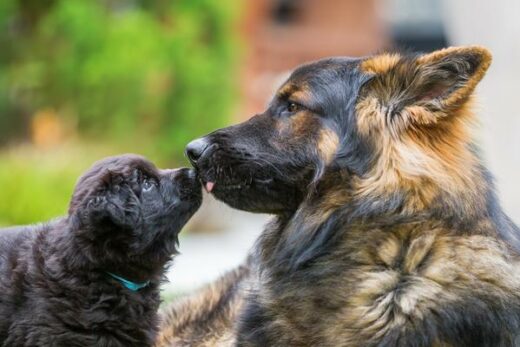While puppies are usually considered adorable, a puppy chewing everything in sight can quickly become annoying. Unfortunately, puppy chewing is something that many new pet parents tend to neglect or inadequately prepare for, and that can make this destructive time in your puppies’ life even more frustrating.
And although it’s destructive, puppy chewing is completely normal behavior and can easily be compared to how human babies put things in their mouths to get more information about the world around them. It doesn’t need to be harshly stopped, only redirected.
But since dealing with your destructive puppy takes so much of your time and energy, it can be very hard to decide on a strategy for what to do to stop this destructive behavior, even when you know that your dog needs to be trained out of it early to prevent future problems.
Why do Puppies Chew on Everything?
Wondering why do puppies chew on wood, shoes, socks, etc.? Puppy chewing is a common problem, but not all dog breeds are equally susceptible to it. Certain pups chew more than others, and dog breeds that chew the most include beagles, golden retrievers, and jack russell terriers. Some reasons for puppy chewing are:

· Separation Anxiety
Separation anxiety is a common reason for destructive chewing. Being pack animals, dogs don’t really like being alone and can become anxious when left to themselves. This anxiety can then manifest as destructive behavior like chewing furniture, carpets, and nearby objects.
· Alluring Odor or Taste
Your dog may also choose to chew certain objects because their smell or taste is appealing to it. Puppies are most attracted to human smells, making shoes in particular especially appealing to them due to their intense smell. Other smelly objects like socks and shirts are also appealing to dogs.
· Texture
Certain textures appeal to dogs’ instincts and make them more prone to chewing. For example, the texture of leather is particularly appealing to dogs, as they are natural predators and associate it with animal hide. So if your puppy likes to chew on your leather shoes, couch, etc., this is likely why.
· Teething
Teething is a painful process for puppies, and chewing can help relieve some of this pain. Puppies also chew more when teething, as they are naturally curious and have an intense desire to explore the world with their newly acquired teeth.
· Hunger
Another reason for your puppy chewing anything it can get its paws on can be hunger. Puppies need to be fed multiple times a day, and if your puppy gets hungry while you’re gone, it may start chewing on non-food objects that smell like food.
· Frustration
Dogs also tend to chew when frustrated. Such chewing is likely a means to get all their excess energy out, and since puppies are particularly high-energy, they are especially prone to this when not getting sufficient mental and physical stimulation.
· Boredom
Some puppies may also choose to destructively chew on everything around them just to have something to do. Like humans, dogs are social animals that need attention and new and exciting toys to play with. In the absence of this social stimulation, dogs can get incredibly bored.
How to Stop Puppies from Chewing: 8 Steps
Now that you understand why do puppies chew, you can start working on stopping puppy chewing. Just provide appropriate chewing outlets as you eliminate inappropriate ones and be consistent and calm, as punishing the puppy will only worsen the situation.
To effectively stop a puppy from chewing on everything, follow the steps below.
1. Stay Alert
The first step to stopping puppy chewing is staying alert, so you can stop it when it happens. Puppies live in the moment, and if you scold your puppy after the deed is done, it is unlikely to understand what it did wrong.
2. Divert Attention
When you do catch your puppy in the act of chewing on an inappropriate object, interrupt your destructive puppy calmly but firmly. Give it something appropriate to chew on and praise it when it chews on that instead.





